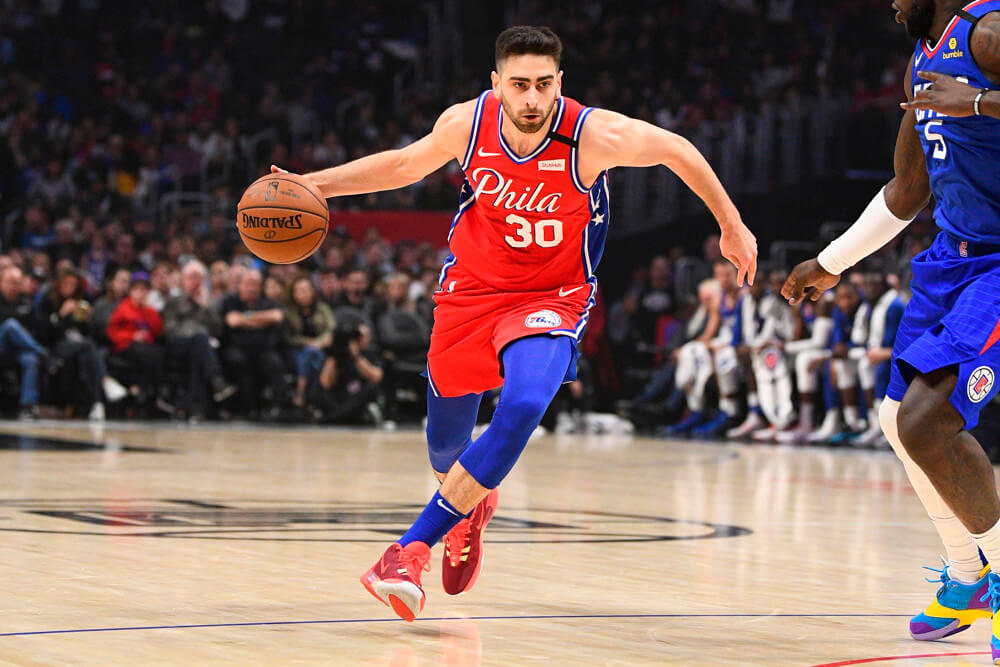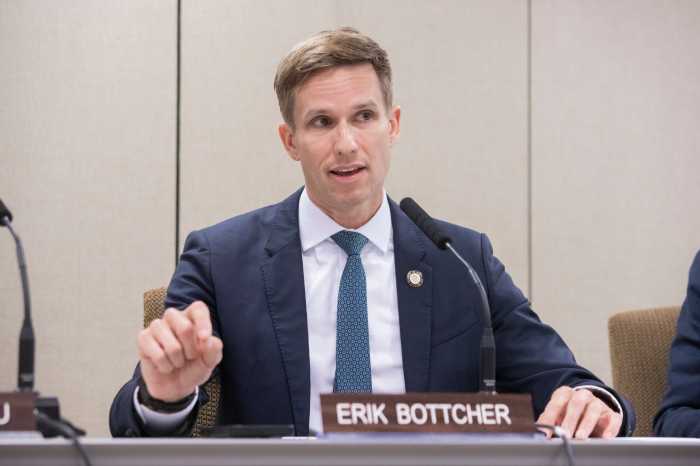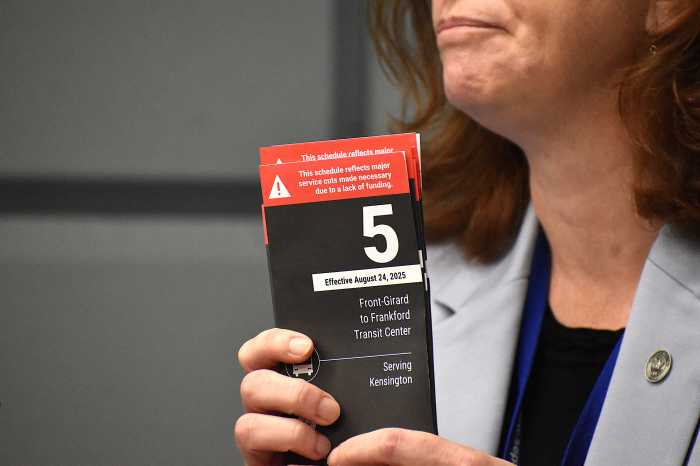The Sixers bench has been a topic of conversation throughout the course of the season. Finding talented role players to compliment Joel Embiid and Ben Simmons has been a struggle over the past few seasons and it was exciting to see a change in this regard. The roster overturns prior to the season have been a refreshing change and contributed greatly to the Sixers’ regular-season success. The additions of Seth Curry and Danny Green to space the floor have been crucial to the starting lineup and proved the be the floor spacing solution that the Sixers needed.
Beyond this, the Sixers also added Dwight Howard and George Hill to provide minutes off the bench and add veteran leadership. They selected Tyrese Maxey with the 21st pick in the draft who has proven to be everything they could have asked for and more. Furkan Korkmaz and Matisse Thybulle have each taken strides in their development and carved out roles for themselves. Despite the recent struggles of Shake Milton, the third-year player has successfully filled the sixth man role throughout most of the season and also has been an integral part of the second unit.
The bottom line is that the talent available on the bench is no longer the issue. While there certainly are areas where the bench could still be improved, each available player has a unique skill set that can be an asset to the Sixers when used properly. It is far more of a concern that Doc Rivers has continued to lean on this group as a “unit” rather than rotating them as complementary pieces alongside the Sixers starters. This will continue to be a problem the further the Sixers go in the playoffs and could ultimately prove to be the team’s Achilles heel if it is not addressed.
Examining the Sixers All-Bench Unit:
Doc Rivers has gone to this “all-bench unit” throughout the season and it has been a part of the regular rotation. There is an appeal to this as it allows the starters to rest, gives the guys with lesser minutes a chance to play with who they typically practice with, and gives opponents a different look. The youthful bench squad deservingly were given time as the Sixers continue to develop each player and give them the opportunity to cement themselves as a part of the franchise’s future plans.
While there was no harm to this in the regular season, the mindset needs to shift in the postseason. With the Sixers now just 12 wins away from a championship and so much at stake in each game, there are no developmental minutes available. Doc Rivers must focus on putting out a lineup that gives the Sixers the best chance at success for all 48 minutes during each remaining game.
When looking back on the different lineups from the regular season, it is pretty clear that Doc prioritized keeping the second unit guys together. The 5-man group of Dwight Howard, Furkan Korkmaz, Shake Milton, Matisse Thybulle, and Mike Scott ranked 3rd in the Sixers rotations for minutes played. Trailing just the starting lineup and the starters with Mike Scott in for Joel Embiid, this bench unit was able to keep the team afloat for periods of time throughout the course of the season.
With the regular season goals accomplished, it is necessary to trim the bench minutes and allow the starters to stay on the court longer. Tobias Harris averages 32.5 minutes per game this season. Ben Simmons played 32.4 minutes per game throughout the year and Joel Embiid averaged just 31.1 minutes. These numbers should all be stretched by up to ten minutes with the guys off the bench giving them minutes in short spurts.
Bench Unit Minutes in Game One:
The game one matchup against the Hawks was an extremely disappointing effort by the Sixers. A late surge at the end made the score much closer than it should have been, but the Sixers failed to find a proper response for the majority of the game. The Hawks’ lights-out shooting, the Sixers’ 19 turnovers, and the overall failure to guard Trae Young all contributed in a major way to the loss. However, Doc Rivers deserves a ton of criticism for his stubbornness to stick with his all-bench lineup and this was ultimately what dug the hole too deep for the Sixers to come back from.
The first substitution for the Sixers occurred with 3:55 left in the first quarter when Matisse Thybulle came in for Tobias Harris. At this point, the Sixers were down 26-19 and this was a move to give a different look on defense against Trae Young.
With 2:38 left in the first quarter, Tyrese Maxey, George Hill, and Dwight Howard all came into the game making Seth Curry the sole remaining starter. Trae Young continued to have his way and pushed the Atlanta lead to 12 prior to this substitution. Furkan Korkmaz became the next substitute off the bench, taking Curry out with 42.9 seconds left in the quarter with a score at 37-27.
The all-bench unit played out the remainder of the first quarter and also started the second together. During this time, the Sixers did not register a single point and the Hawks continued their rapid scoring pace. Tobias Harris was the first Sixers starter to sub back in with 10:06 left in the second. The Hawks lead had been stretched to 20 points as the score was 47-27 at this point.
Ben Simmons, Danny Green, and Joel Embiid soon joined Tobias Harris on the floor with 8:32 left in the second. At this point, the lead had been stretched to a game-high 26 as the Hawks led 53-27. The Hawks deserve credit for hitting their shots and playing well, but it was clear that the Sixers’ second unit was overmatched and this resulted in the gap becoming too much to overcome.
What Adjustemnts Should be Made?
Simply put- Doc Rivers cannot continue to rely on the second unit on the court at the same time. Each member of the bench has a unique skill set that can help the team win if used correctly. It is a failure of Doc Rivers to play the group all together in a way that forces each player to do more than simply what they are best at. If paired with one or more of the Sixers’ starters, guys like Furkan Korkmaz or Matisse Thybulle can simply focus on what their skillset can produce rather than trying to do too much.
As Doc Rivers put it postgame, the Hawks “hit us in the mouth to start the game.” While the deficit climbed to its largest with the bench in the game, the starters also looked sluggish to start the game. In Rivers’ defense, he could have been hoping for a spark from the bench with the Sixers struggling early in the game.
However, this seems to be a more concerning trend as Rivers has continued to rely on the all-bench unit for periods of time. The lineup of George Hill, Tyrese Maxey, Furkan Korkmaz, Matisse Thybulle, and Dwight Howard has played the third-most playoff minutes so far and was seen in the previous Wizards series as well. Rivers continually has refused to avoid putting a number on the rotation throughout the season and he also has a reputation for not making changes on the fly.
The Sixers were able to skate by the Wizards in round one as they were a significantly more talented team, but the gap is no longer this big. When used in spurts and alongside more complete players, the deficiencies of the bench players are able to be hidden. Just as is the case with many bench players in the NBA, the more minutes that are given to the subs the clearer the holes in their games can be seen. Rivers must scratch the all-bench lineup from his game plan in order to maximize each player’s talents and increase the Sixers’ chances of postseason success.
Photo by Brian Rothmuller/Icon Sportswire



























